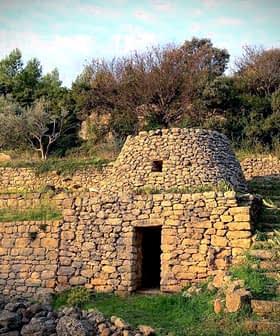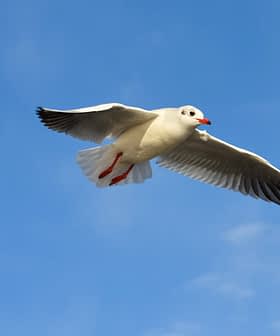Aceite Uno Helps Fund Research on Childhood Leukemia
Uno takes its name from a foundation dedicated to research on childhood leukemia.
 Víctor Forti (Pablo Esparza for OOT)
Víctor Forti (Pablo Esparza for OOT)“Our motto is that Uno is not a good oil just because the oil itself is good, but because it does something that has an impact on society. That was one of our goals” says Víctor Forti, founder and manager of Aceite Uno, as he walks through his estate in Mancha Real.
A seemingly infinite extension of olive groves covers the hills around. We are at the heart of the sea of olive trees, in the Andalusian province of Jaén.
Uno (meaning one in Spanish) takes its name from the Foundation Unoentrecienmil — one among 100,000 — dedicated to funding research for childhood leukemia and to improve the well-being of children suffering from the condition.
“Collaborative economy is one of our guiding values. I believe that, in some way, you have to give back what you get from society. So we thought: what could we do which is good for people and for the rest of the world? We got to know the foundation and we decided to cooperate with them,” Forti tells Olive Oil Times.
The Foundation Unoentrecienmil was founded by José Carnero, whose son Guzmán was diagnosed in 2010 with acute lymphoblastic leukemia, a kind of cancer that occurs in just three out of 100,000 kids.
“Above all, there were two thoughts that made me stand up: One was the confidence that he was going to be that one among 100,000 to overcome that ‘formality,’ ” Carnero writes on the website of the foundation.
“And also, from the very first moment, I had the full certainty that everything happens for one reason: to improve something, to change something, to transform something,” he adds.
In 2010, Carnero started a blog where he shared his experience and his son’s during the treatment of the disease.
Soon after, that project served as a basis to create the foundation, which in the last nine years has managed to deliver eight grants of €100,000 ($111,000) to projects researching childhood leukemia.
Those values matched Forti’s will of following the principles of the collaborative business. So he decided to give 30 percent of Uno’s profits to Unoentrecienmil.
“That’s why (our oil) is called Uno,” Forti says. “Since olive oil is a really healthy product, I think this collaboration makes sense.”
But apart from pursuing a good purpose, Forti also wanted to produce high-quality oil from his family’s olive groves.
“I studied law and then got into the leisure and hotel businesses, but my family has always worked in the olive groves. And, since I was a kid, I have always liked coming to the fields and working here. So when I had the chance — because my parents were growing old and they couldn’t manage it — I took a step forward and I said: Ok, I’ll do it,” he recalls.
Then, he came up with the idea of producing an early harvest olive oil, which, in his view, is key to producing a high-quality product.
In 2019, Uno won a Silver Award at the NYIOOC World Olive Oil Competition.
Early harvest olive oils is a world of kind of romantic, crazy people who bet more to quality than to profitability.
“We harvest in three days, more or less. We harvest with much love, taking the maximum care of the product from the moment we harvest until it’s packaged. We do six hours of harvest and within the four following hours the oil is already made,” he explains.
All of Uno’s oil is produced from the harvest of one of Forti’s Picual olive groves which were planted fifteen years ago.
Most of the olive groves in this area between the foothills of Sierra Mágina and the valley of the Guadalquivir are traditional plantations. “Here you won’t find a lot of hectares of intensive productions,” Fortis points out.
“These olive groves mark the character of the people of this region. Mancha Real and Torrequebradilla can’t be understood without the olive groves,” he adds.
Three years after its foundation, Uno is still a relatively new project. When asked how he sees its future, Forti is both optimistic and cautious.
“We started little by little, as I believe things have to begin. I want to consolidate Uno as a good quality olive oil and, step by step, increase its distribution. But always from my own olive groves and the same standard of quality,” he says.
“Early harvest olive oils is a world of kind of romantic, crazy people who bet more to quality than to profitability. And that oil, one day, I hope soon, will have the recognition it deserves because it takes a lot of work, effort and sacrifice.”








